- Home
- Joy Fielding
Mad River Road Page 16
Mad River Road Read online
Page 16
“Oh, God. I don’t know any. Do you?”
“What’s black and white and red all over?” Emma offered.
“A newspaper?”
“A nun rolling down a hill.”
“Oh, God. That’s the dumbest joke I’ve ever heard,” Lily wailed.
“Really? It’s a big hit with the kindergarten crowd.”
“I think I’m going to be sick.”
“You’re going to be fabulous.” Emma opened her front door, gently pushed Lily onto the landing. “Just remember, if all else fails …”
“What?”
Emma smiled, took another sip of her wine. “Lie.”
After the boys were asleep, Emma relaxed in the living room with another glass of wine. Despite Dylan’s fears—and hers—the evening had progressed without a hitch. The boys had finished their dinner, then raced upstairs to play with Dylan’s toys. And although there weren’t a lot of toys to choose from—his beloved Spider-man doll, a small army of G.I. Joes, some Legos, a bunch of plastic cars and trucks—they seemed happy enough. There was the obligatory game of hide-and-seek before bedtime, followed by Dylan’s nightly rituals, all of which he performed with a minimum of fuss and a maximum of subtlety. If Michael noticed anything was strange, he hadn’t voiced his concerns. Instead, he and Dylan had climbed into her bed as she was watching a rerun of Friends, the episode in which Ross says, “I take thee, Rachel,” when he’s marrying somebody else. The only worrisome moment of the evening had come when Dylan had turned to Michael as the program concluded and proudly announced, “My mother was named after Rachel’s baby.” Luckily, the dubious logistics of that one had gone sailing clear over Michael’s head.
“Cool,” was all he’d said.
“Cool,” Dylan had repeated with a laugh.
Now Emma sat, sipping on her wine and wondering what she was going to do for the balance of the evening. She could read a book. If she had one, she thought. She topped off her glass, wondering how Lily was doing on her date. “To the happy couple,” she said, wishing now she’d moved the TV downstairs so she’d have something to occupy her time. She couldn’t just sit here, talking to herself and drinking all night. Could she? “Why not?” she asked out loud, kicking off her shoes and curling her legs around the various angles of her brown sofa, trying to get comfortable. I don’t belong here, she was thinking as she closed her eyes. I don’t belong on Mad River Road.
Had she ever belonged anywhere?
She certainly hadn’t belonged at the Bishop Lane School for Girls, that god-awful bastion for the spoiled daughters of the elite, where the title of posture queen was as coveted as the position of valedictorian, which shouldn’t have come as any surprise, considering the numbers of poles stuck up the students’ perky asses. Now that’s the speech she would have given had she been selected valedictorian. Hah! Fat chance of that.
Although her first term had held such promise. Those first few months before anyone knew who she really was, before it was discovered that she was a charity case, that her mother was part of the custodial staff. The janitor’s daughter! they whispered in the halls as she walked past, as if she were a communicable disease.
All she’d wanted was to fit in, to be like the other girls, but how could she be like the others when they had everything and she had nothing, when even the cheapest pair of designer jeans was well beyond her means? Was it really so surprising she’d started shoplifting? Just little things at first. A lipstick here, some nail polish there. “That’s a great color,” Sarah Johnson had commented the next day in class. The first sign of affirmation she’d had from her peers in months. That faint hint of acceptance had been enough to carry her through the day and sustain her through many subsequent slights. So why not help herself to this pair of neat leather gloves, especially when the salesgirl was being so snooty? And these sneakers? Weren’t they just like the ones Lucy Dixon received such compliments on? And what about this skirt and sweater? She looked good in them, felt even better. In these clothes, she was as good as anybody else. She’d show them—the janitor’s daughter was nobody’s charity case.
How ironic that in order to belong, she’d had to take things that didn’t belong to her, Emma thought now, remembering the rush, the feeling of sheer exhilaration, of power, she’d experienced each time she secreted an item inside her oversize bag.
She also remembered the subsequent anguish, the guilt, the promises she’d made to herself to stop.
Except, she hadn’t. Couldn’t, despite her best intentions. Then one day, exiting Neiman Marcus with three miniskirts under her school uniform, she was detained by a female guard who’d been monitoring her stroll through the store. They found the three skirts, the two bras, the cashmere sweater set, even the stupid tube of moisturizing cream she’d pocketed on her way out, a last-minute impulse, a gift for her mother on Mother’s Day. Some gift. The store called her school, her mother, and the police, although they ultimately declined to press charges.
It was her first run-in with the police. But not her last.
The following year, she’d skipped school one afternoon to sneak into the local multiplex. Of course she got caught, and the theater, deciding to make an example of her, had called the school. She’d been suspended for two days and warned that any future transgressions would not be tolerated. She was lucky her mother was a well-regarded employee, the principal said.
Six months later, her mother was let go, and she found another job, forcing Emma into another school. Emma colored her hair, altered the spelling of her name, told everyone her mother was dying of cancer. For a while this gained her a measure of acceptance. But then some good samaritan from the guidance office called her mother and asked if there was anything she could do to help her during this difficult time, and Emma was exposed as a liar and a fraud. Several days after that, she ran into some former classmates from Bishop Lane. “Is it true you have such big boobs because you wear twelve bras?” asked one of the girls.
Emma responded by punching her in the face. “Served her right,” Emma snorted now, remembering all the blood and finishing what was left of the bottle of wine. Of course, the school had been notified and her mother informed. This time, the police were summoned, although again no charges were filed. “You’re lucky,” the arresting officer had told her, lecturing her on the error of her ways before asking her to blow him in the backseat of his cruiser.
And now she was babysitting the son of the only friend she’d made in years so that said friend could go out to dinner with—ta dum!—a cop. Another of life’s little ironies. As was the fact her mother had died of cancer after all, not long after Emma’s ill-fated marriage. Emma struggled to her feet, as if trying to escape the man she’d married. You can run, but you can’t hide, she was thinking as the room spun around her. She quickly sank back down. Where was she going anyway? No matter how fast she ran, no matter how far she traveled, her past went with her. She could make all the fresh starts she wanted. She’d still end up in the same place.
THIRTEEN
“Some more wine?” Jeff Dawson reached past the thick, cream-colored candle in the middle of the pink linen tablecloth for the bottle of expensive Merlot.
Lily shook her head, then quickly changed her mind. How often did the opportunity to drink good wine with a nice man in a chic restaurant present itself these days? And who knew when it would happen again? She might as well take advantage of the opportunity. “Okay. Just a bit.”
Jeff poured an inch of wine into her glass before adding a similar amount to his own. “How’s your salmon?”
“Fabulous. Your lamb?”
“Perfection.” Jeff cut a piece, dangled it on his fork, the knot of his burgundy tie straining against his linebacker’s neck as he proffered it across the small table. Even the tailored, navy blazer he wore over his powder blue shirt wasn’t enough to camouflage the massive expanse of his chest and arms. “Here. Try some.”
Lily opened her mouth to accept the offering. “Oh, that i
s good. You want to try the salmon?”
“No, I’ve never been much of a fish eater,” Jeff confessed, almost guiltily. “I blame my mother.”
“Oh, sure. Everybody always blames the mother.”
Jeff laughed. “Actually, she was a great mother, just not much of a cook. And I’m afraid the only fish she ever served us were these awful salmon patties that I hated.”
“I never liked those either.”
“So I never developed the taste.”
“There’s still time.” Lily motioned toward the salmon on her plate.
“Nah. I’m just a meat-and-potatoes kind of guy, I guess.” He popped another piece of meat into his mouth, as if to underline his point.
Lily watched him chew, enjoying the enthusiastic movement of his jaws. He has a nice mouth, she thought, her eyes sweeping up from his soft, full lips, past the twice-broken nose to the small, Y-shaped scar in the middle of his right cheek, then stopping to admire the straightforward look in his close-set, dark blue eyes. Not handsome exactly, not even handsome remotely, and curiously, all the more appealing because of it. Lily had never been particularly partial to handsome. She’d always preferred a man with flaws. “How’d you get the scar?” she asked. “If you don’t mind my asking.”
“Don’t mind at all,” he told her. “Knife fight with a dope-crazed drug dealer.”
“Oh, my God. Really?”
“No.” Mischievous eyes twinkled in the candle’s soft light. “But I’ve always wanted to say that. Sounds very dramatic, don’t you think?”
“I’ve never been a huge fan of dramatics.”
“No? That’s good then, because the truth is really very mundane.”
“What is it?”
“I had this small tumor growing on a nerve on my cheekbone. Ten, eleven years ago. They had to cut it out.”
“Sounds scary.”
“Not quite as scary as having to subdue a dope-crazed, knife-wielding drug dealer, but yeah, I guess it was a pretty scary time,” he admitted. “Luckily, the damn thing was benign. So …”
“So,” Lily repeated, stabbing at a piece of lettuce and surreptitiously checking the front of her melon-colored blouse to make sure she hadn’t inadvertently sprayed herself with salad dressing. Which is just the sort of thing she would do, she thought, tucking her hair behind her left ear and wondering if Jeff was enjoying himself as much as she was.
The restaurant was lovely, everything the ecstatic newspaper reviews had claimed. Intimate without being claustrophobic, romantic without being cloying, sophisticated without being pretentious. The walls were deep purple, the floor and ceiling light oak. Classical jazz played quietly in the background. There were fresh flowers everywhere. And the food was wonderful, although Lily had almost gagged when she saw the prices.
“So,” Jeff said again, and they laughed. “Have I told you how beautiful you look tonight?”
Lily felt her cheeks grow warm. Again she tucked her hair behind her left ear, although it was already secure, then stared down at her plate. “You have, yes.”
“Is it okay to tell you again?”
“Be my guest.”
“You look beautiful.”
Lily smiled, tossed aside the compliment with a wave of her fingers.
“You don’t believe me?” Jeff leaned forward in his seat, rested muscular forearms on the table.
“Well, I could stand to lose a few pounds.”
“You gotta be kidding me.”
“At least five pounds.”
“No way.”
“Well, that’s very sweet of you, but—”
“Hey, I’m a cop. I never lie.”
“Really?”
“Well, no. I guess I lie occasionally, same as everybody else.”
“On what occasions?” Lily asked.
“What?”
“On what occasions do you lie?”
Jeff put down his fork, looked toward the ceiling, obviously giving the question serious consideration. “Well, professionally, I lie in order to get information or extract a confession.”
“Is that ethical?”
“Absolutely. There’s nothing in the Constitution that says I have to be honest when I’m dealing with thieves and murderers.”
“You deal with a lot of murderers?”
He shrugged. “Not too many. Statistically, murder is still a pretty rare occurrence.”
“Thank God for that.”
“The murderers I have dealt with weren’t a whole lot different from you and me. At least on the surface.”
“And below the surface?”
“Well, that depends.”
“On what?”
“Circumstances. How can I explain this?” He looked around the crowded room, as if searching for someone he knew. “Okay, see that couple in the corner?”
Lily glanced casually to her right. “The man with the beard and the woman in the polka-dot dress?”
Jeff nodded. “Okay, so suppose tomorrow morning, you’re reading the newspaper, and you find out Mr. Beard’s been arrested for killing Mrs. Polka Dots.”
“Okay,” Lily said, stealing another look at the middle-aged couple in the corner and wondering if they had any inkling they were the subjects of such unsavory speculation.
“Okay, so, scenario number one: Beard tells Polka Dots he has to go back to work for a few hours after dinner; Polka Dots goes home; Beard works for a while, then decides he’s had enough and returns home earlier than expected; Beard walks in and finds Polka Dots in bed with his best friend; Beard goes berserk and sprays Polka Dots all over the walls.”
“A crime of passion,” Lily said, imagining polka dots all over the deep purple interior and trying not to laugh. “Not to mention, very colorful.”
Jeff smiled. “Lawyer’s going to argue that, ordinarily, Beard would never do such a horrible thing, that he’s this upright citizen who pays his taxes and loves his dog and takes care of his widowed mother, but that the shock of finding his wife in bed with his best friend rendered him temporarily insane, and therefore, he isn’t responsible for his actions. Chances are pretty good the jury agrees with him. Mr. Beard may have killed someone, but he’s not really a murderer. It could happen to any one of us. Okay?”
Lily nods.
“Okay, scenario number two: Beard and Polka Dots go home; she accuses him of flirting with the waitress all night; he says she’s crazy; she calls him a bastard; he calls her a bitch; the fight escalates. They’re screaming and pushing each other. Next thing you know she grabs a knife and stabs him through the heart. He’s dead before he hits the floor, and she’s sobbing to the arresting officer she didn’t mean to do it. The lawyer gets up in court, details Beard’s assorted infidelities and Dottie’s abject apologies. She’s a God-fearing woman who’s never had so much as a parking ticket; she’ll never do it again, et cetera, et cetera.”
“She may have killed someone, but she’s not really a murderer,” Lily continues. “It could happen to any of us.”
“Scenario number three: they go home; he’s had too much to drink; he starts using her as a punching bag, something he does on a regular basis, except this time it’s worse; he says he’s going to kill her, but during the struggle, she breaks free, grabs a gun …”
“Dottie shoots Beard in self-defense.”
“Exactly. She kills him, but is she really a murderer?”
“Scenario number four?”
“Same as number three, except this time, Beard makes good on his threat and beats Dottie to death with his fists.”
“Well, this case is different.”
“How so?”
“This time he really is a murderer.”
“You don’t think it’s something that could happen to any of us, given the right—or wrong—set of circumstances?”
“I think we can all be victimized,” Lily argued, choosing her words carefully. “I think we all make bad choices now and again, but in this case, you’re talking about a history of abuse,
a conscious and repeated decision to brutalize another human being, and ultimately take another life.” Lily shuddered, took a soothing sip of her wine. “I think it’s different than the other cases you described. There’s no reasonable doubt here.”
“I agree,” Jeff said. “Beard’s a cold-blooded killer who deserves to be put away for life. But looking at him now, sitting there, laughing and enjoying his coffee, how can you tell? He looks just like you and me. Which brings us to scenario number five, and the most dangerous killer of all—the psychopath.”
“And what makes him more dangerous than the others?”
“A total lack of conscience. Plus he’s a chameleon. He changes personalities as easily as you or I change clothes. He studies you, gives you the guy you want to see. He has no real feelings, but he’s great at pretending. You can be married to a guy like Beard for years, and then one morning you wake up to discover he’s been lying to you since day one, that he never went to medical school, that he has another family up in Canada, that his last three wives have all disappeared under mysterious circumstances. That’s if you’re lucky. The unlucky ones are the ones who never wake up, who disappear while walking the dog and turn up months later in a nearby lake or a stinking pile of landfill. Turns out Beard’s just been biding his time.”
“But why does he kill?”
“Insurance money, another woman, fear of being found out. Sometimes he kills just because he likes it. Hell, to him it’s no different than swatting a fly.”
“Talk about scary.” Lily glanced back at the man with the beard as he popped a piece of apple flan into his mouth and continued talking to his companion in the polka-dot dress. “I guess you never know about people.”
“Think about it. What does everyone always say when they hear about some particularly grisly crime?” Jeff asked. “The people who live down the street from the wacko who’s just been arrested for burying twenty people alive in his backyard? They always say the same thing: ‘He was so nice, so quiet. We never would have suspected him in a million years.’ ”
“So you’re saying everyone has a secret life?”

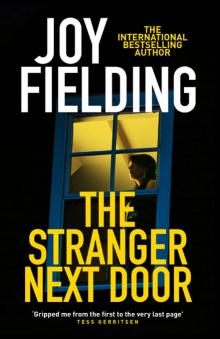 The Stranger Next Door
The Stranger Next Door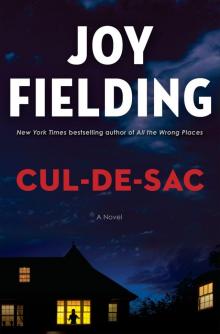 Cul-de-sac
Cul-de-sac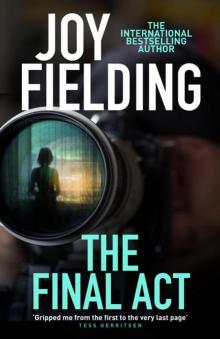 The Final Act
The Final Act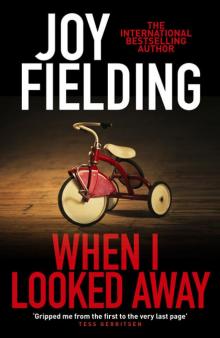 When I Looked Away
When I Looked Away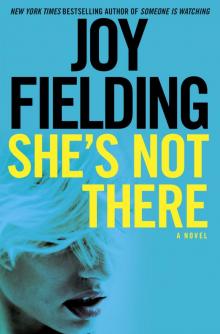 She's Not There
She's Not There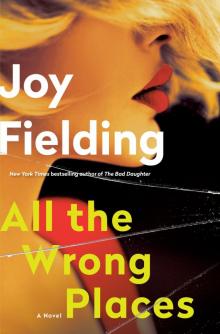 All the Wrong Places
All the Wrong Places Now You See Her
Now You See Her Don't Cry Now
Don't Cry Now Good Intentions
Good Intentions Still Life
Still Life Lost
Lost The First Time
The First Time Whispers and Lies
Whispers and Lies The Other Woman
The Other Woman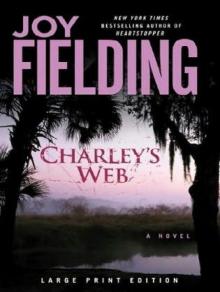 Charley's Web
Charley's Web Mad River Road
Mad River Road Puppet
Puppet Life Penalty
Life Penalty The Wild Zone
The Wild Zone Home Invasion
Home Invasion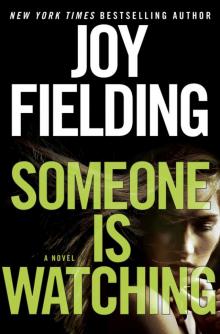 Someone Is Watching
Someone Is Watching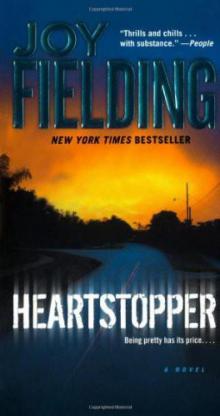 Heartstopper
Heartstopper See Jane Run
See Jane Run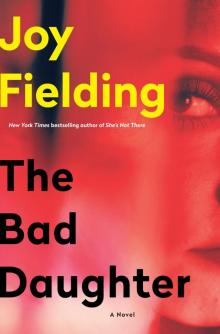 The Bad Daughter
The Bad Daughter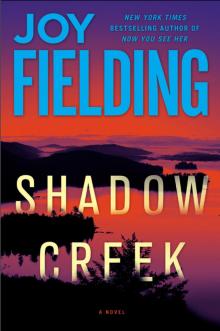 Shadow Creek
Shadow Creek Missing Pieces
Missing Pieces Kiss Mommy Goodbye
Kiss Mommy Goodbye Grand Avenue
Grand Avenue